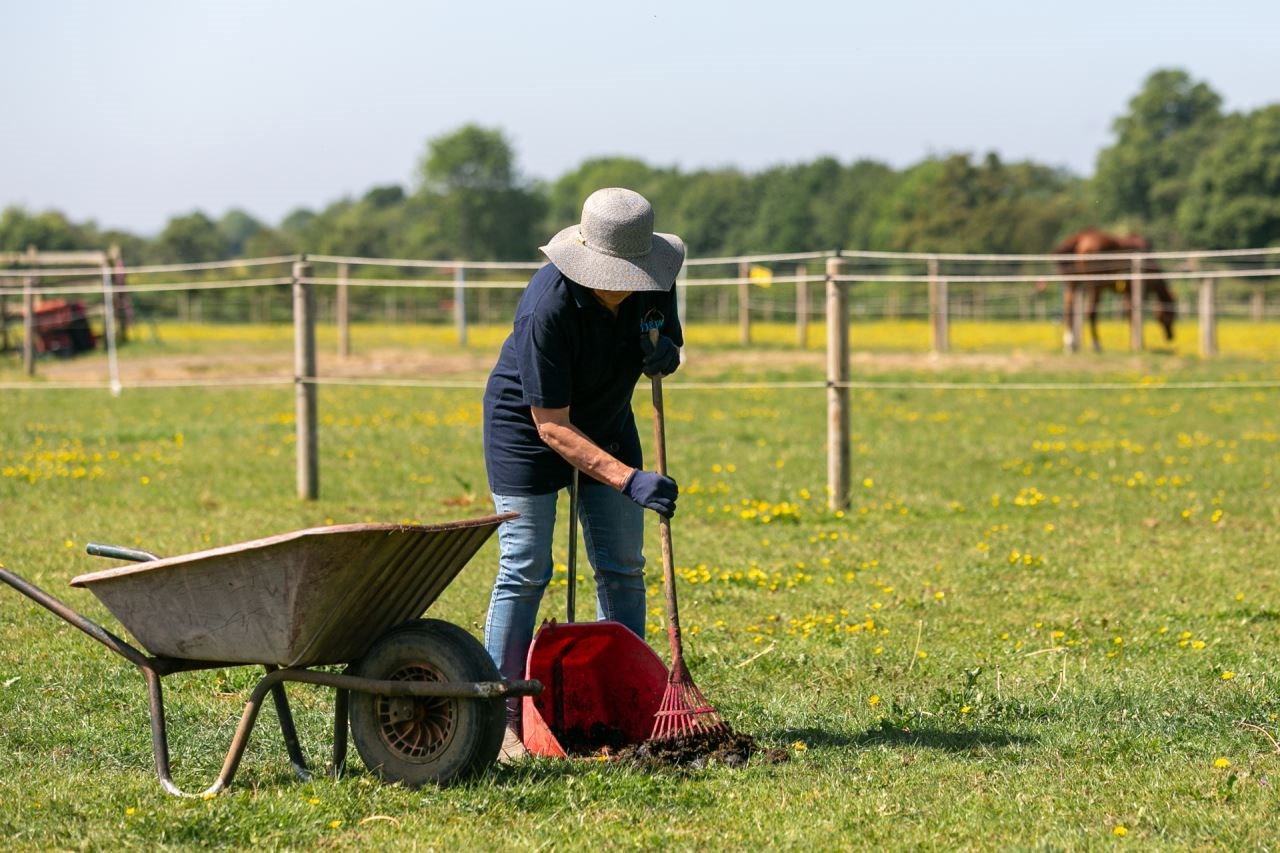Worming – A risk-based, diagnostic-led approach to worming in adult horses
All horses have worms – this is natural and healthy. Whilst most of us understand the need to ensure that our horses do not develop significant worm burdens, there is evidence to suggest that many of us are not treating our horses in the most effective way.
Like antibiotics, there is growing resistance to the drugs used in wormers and worryingly there are no new or alternative drugs on the horizon. This resistance is being fuelled by the routine and overuse of wormers.
There is also concern about about the serious environmental toxic effects of equine parasiticides on invertebrates, aquatic animals and other organisms.
To help slow down the rate of resistance and minimise the impact on the environment, it is essential that we reduce the quantity of wormers that we currently use, and only treat horses with wormers when we are certain that they need treatment.
We can do this by maximising the use of other ways of controlling worms such as good pasture management and by using a risk-based, diagnostic-led approach to worming adult horses.
Note that the approach to parasite control in foals and horses less than 5 years old is different.
What is a risk-based, diagnostic-led approached to worming?
An annual worm risk assessment, together with regular faecal worm egg counts and tapeworm tests, are essential elements of a risk-based, diagnostic-led approach to worming and is the most effective way to determine if and when, a horse needs to be treated for worms.
- The annual risk assessment, coupled with regular faecal egg counts and a tapeworm saliva (or blood test) enable us to decide which horses to treat, which wormer to use, and which horses not to treat. It is particularly useful for helping to determine whether your horse is at low, medium or high risk of small redworm larvae infection.
- The faecal egg counts measure how many redworm eggs your horse is passing in its droppings and, therefore, contaminating the pasture.
- The tapeworm tests tell you how many tapeworms the horse has (this can’t be determined by a faecal egg count).
We recommend that the risk assessment is carried out at the same time that you carry out a tapeworm saliva test in the autumn, although it can be done at any time during the year.
What is a Worm Risk Assessment?
For most horses, the worm risk assessment can be carried out annually. The ideal time is when you carry out a tapeworm saliva test in the autumn.
The risk assessment consists of a questionnaire about your horse including questions about:
- Age
- Number and age of horses sharing the same pasture
- Whether your horse grazes with other animals such as cattle, sheep and donkeys
- Size of your pasture
- Whether or not you poo-pick
- Results of past worm egg counts, tapeworm tests and any other tests which may have been carried out
- Information about the yard and newcomers to the yard
Why is the Worm Risk Assessment necessary?
The answers to the questions on the worm risk assessment, together with your horse’s worming history will help your vet or SQP to decide whether your horse needs treating with a wormer, and whether/how the risk of worm infection can be reduced.
This will be particularly important in the autumn to help determine whether your horse should be given a wormer to treat encysted redworm larvae, but it will also be valuable all year round.
The risk assessment also helps to identify other things you may be able to do to help reduce your horse’s worm burden in terms of pasture management.
Minimising your horse’s worm burden
There are several things you can do to help reduce your horse’s worm burden, which include:
- Regularly ‘poo pick’ paddocks (ideally daily but at least twice a week)
- Don’t harrow pastures
- Don’t use horse manure as a fertiliser on horse paddocks
- Don’t overstock pastures (ideally two acres or more for each horse)
- Graze paddocks with other livestock (sheep or cattle)
- Sub-divide grazing areas into smaller paddocks and graze on a rotational basis
- Rest paddocks for 6 months or longer if possible
How can I ensure that I give the correct dose?
When worming your horse, it is very important that you give the correct dose. Not giving enough will not only reduce the effectiveness of the wormer but also aid resistance to it. Most wormers are very safe but accurate dosing is probably more important for young animals as their weight is often more difficult to estimate. Ask for help from your vet if this is the case.
Further information and instruction on weighing your horse can be found at:
Weighing your horse before worming
DON’T FORGET, OUR VETS ARE ALWAYS HAPPY TO GIVE FREE ADVICE ON WORMING AND A SUITABLE WORMING PROGRAMME FOR YOUR HORSE.
We offer faecal worm egg counts, tapeworm saliva tests and have a range of wormers available at very competitive prices. Contact your local B&W Clinic for prices and further details.
Why getting worming right is easy with the Horse Health Programme
Get the best preventative health care for your horse and spread the cost in easy monthly payments.
The Horse Health Programme includes many benefits, including everything you need for a diagnostic-led, risk-based approach to worming making it as easy as possible for you.
Contact your local B&W Clinic to register.
Follow us on facebook B&W Facebook Page
